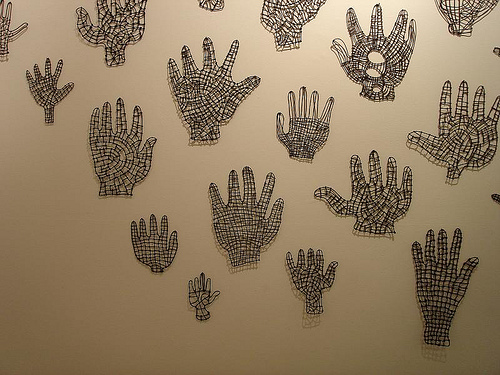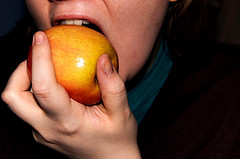
Part of traveling responsibly is being cultural sensitive. As travelers tour a foreign country, you may inadvertently offend a local and never realized it! Popular gestures at home can have completely different meanings abroad.
Budget Travel provides a great slideshow of rude gestures you might want to know (and avoid) while traveling. Ninemsn has a list of popular gestures and customs that can be misconstrued on foreign land. Some examples include:
The Okay

Think the reliable okay sign is benign? “Beware of making the round ‘okay’ sign with your thumb and forefinger. In Greece and Turkey, for example, this gesture can be taken as highly vulgar. You are telling someone that they resemble a similarly shaped part of the human body and, by extension, that they are homosexual. In some Middle Eastern countries, such as Kuwait, the okay sign signifies the evil eye.”
Thumbs Up & Other Fingers
 “Should you ever find yourself in an Iranian carpet souk and want to signal to the rug dealer that he’s named a price you can agree on, don’t give him the thumbs-up. You’d actually be telling him where he could stick his offer, rather than the desired effect. Giving someone the finger – showing them your raised middle digit, palm towards you – might be the most widespread obscene gesture in Western countries (it probably originated in ancient Greece and was spread by the Romans) but you’ll find on your travels that almost any protruding digit will cause offense somewhere. In the Philippines summoning someone with a finger is considered suitable only for dogs and is punishable by arrest.”
“Should you ever find yourself in an Iranian carpet souk and want to signal to the rug dealer that he’s named a price you can agree on, don’t give him the thumbs-up. You’d actually be telling him where he could stick his offer, rather than the desired effect. Giving someone the finger – showing them your raised middle digit, palm towards you – might be the most widespread obscene gesture in Western countries (it probably originated in ancient Greece and was spread by the Romans) but you’ll find on your travels that almost any protruding digit will cause offense somewhere. In the Philippines summoning someone with a finger is considered suitable only for dogs and is punishable by arrest.”
Pointing

“Pointing with your finger is rude in so many countries it’s probably wise just to abandon the gesture altogether overseas. Use an open hand instead to indicate direction.”
Eating & Hands

“Don’t eat anything with your left hand in Muslim countries or in India. That part of the body is used for an entirely different function in such places, one people don’t want to be reminded of when eating. The left hand really is a poor relation of the right in these parts of the world; you should also avoid gesturing or shaking hands with it. If their right hand is wet or dirty Senegalese people will offer their right wrist for a handshake or their left hand, but with an apology.”
Hand-Holding

Grown men holding hands? If you’re uncomfortable with that, consider this – such Western views represent “a minority worldwide. It’s quite unremarkable to see two male chums walking down the street holding hands, or arm in arm, in India and in Muslim and African lands.”
Slurping

“Slurping your soup – or indeed your coffee or tea – might be a no-no but in Japan and other Asian countries it’s considered good table manners. Slurping indicates you’re enjoying the meal.”
The Compliment

Think paying a compliment on someone’s sofa is harmless? Watch out — when you pay a compliment on an item “in Arab and African countries, such as Jordan, Senegal and Nigeria. Your host might think he or she is obliged to give you the item in question. An awkward situation all round.”
Check out ninemsn.com for the full list.
Know of any gestures or customs that may offend someone while traveling? Share them with us.
post by emma stephens
photo credit: flickr